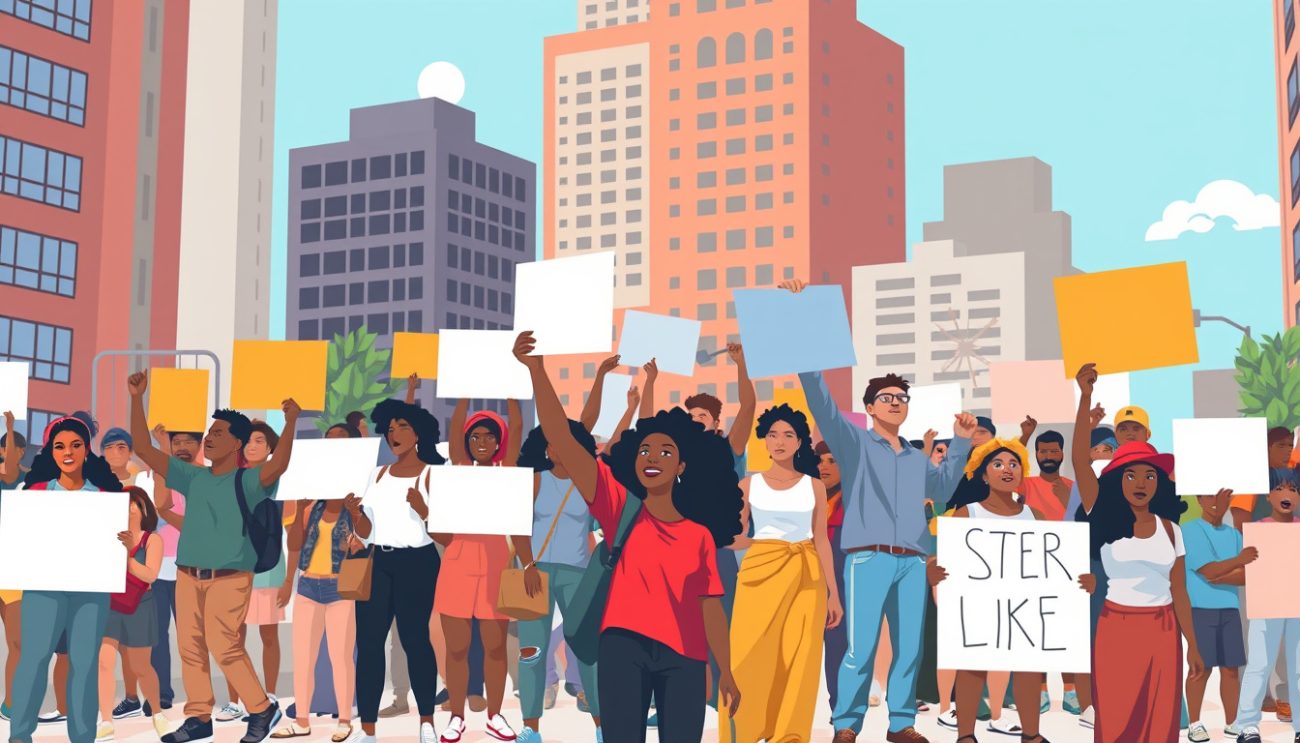Empowering Change: The Transformative Power of Social Activism in Today’s World
Social activism is a potent force driving societal transformation, addressing inequalities, injustices, and pressing challenges within communities and across the globe. Rooted in intentional efforts to reform social structures, activism champions causes ranging from human

Social activism is a potent force driving societal transformation, addressing inequalities, injustices, and pressing challenges within communities and across the globe. Rooted in intentional efforts to reform social structures, activism champions causes ranging from human rights to environmental protection. This article explores the essence of social activism, its diverse forms, key issues it targets, and the critical roles activists play in fostering enduring change.

Understanding Social Activism
At its core, social activism involves purposeful actions aimed at influencing or changing societal norms, policies, and practices. Unlike broader activism—which may encompass political or economic efforts—social activism zeroes in on social issues such as gender equality, racial justice, LGBTQ+ rights, child welfare, public health, housing affordability, and environmental justice.
Activists employ a spectrum of methods to raise awareness, mobilize support, and apply pressure for change. This multifaceted approach can involve grassroots community organizing, public demonstrations, digital campaigns, petitions, boycotts, strikes, and sit-ins.
Forms of Social Activism
Social activism adapts to the activist’s context, skills, and resources. The primary forms include:
-
Marches: Public demonstrations that visually and vocally advocate for specific social causes, historically exemplified by events like Gandhi’s Salt March or civil rights protests.
-
Strikes: Workers may halt labor to demand fair treatment or policy changes, highlighting economic dimensions of social activism.
-
Sit-ins and Die-ins: Occupying spaces to protest discriminatory policies or injustices; a strategy integral to the civil rights movement.
-
Petitions and Letters: Grassroots and organized campaigns that gather signatures or appeal directly to policymakers, influencing legislation or corporate behavior.
-
Boycotts: Economic pressure by refusing to purchase from entities engaged in unethical practices.
-
Digital Activism: Leveraging technology and social media for rapid dissemination and mobilization, though sometimes critiqued for fostering passive engagement.
-
Community Organizing: Building and empowering local networks and associations to address social inequalities collectively.
Key Issues in Social Activism
Social activists focus on a broad range of interconnected issues shaped by social, political, and economic factors:
-
Gender Equality: Advocating for equal rights and opportunities across all genders, challenging discrimination in education, healthcare, and employment.
-
Racial Equality: Combating systemic racism and promoting equitable treatment in policing, housing, and other societal structures.
-
Environmental Justice: Addressing the disproportionate environmental burdens on marginalized communities and advocating for sustainable practices that honor indigenous and local rights.
-
LGBTQ+ Rights: Ensuring the protection, recognition, and safety of LGBTQ+ individuals through legal reforms and societal acceptance.
-
Child Welfare: Protecting the rights and well-being of children by promoting access to healthcare, education, and safety.
-
Public Health: Enhancing community health through equitable healthcare access, awareness campaigns, and combating health disparities.
-
Housing Affordability: Fighting discriminatory policies and market failures that prevent access to safe, affordable housing.
The Four Essential Roles of Activists
Bill Moyer’s Movement Action Plan describes four interrelated roles vital for the success of social movements:
-
Citizen: Activists must be seen as responsible members of society who affirm shared values such as democracy, justice, and nonviolence. This role builds the movement’s credibility and public acceptance.
-
Rebel: The dissenting voice that publicly says “No!” to injustices through protests, rallies, and civil disobedience, spotlighting violations that demand attention.
-
Change Agent: Educates and organizes the broader public to participate actively in the movement, promoting sustainable, participatory democratic engagement and alternative solutions.
-
Reformer: Works within official political and judicial systems to institutionalize change, using tools like lobbying, litigation, and policy advocacy to transform grassroots demands into laws and norms.
Activists and organizations may specialize in different roles but recognizing the necessity of all four helps encourage cooperation and coherence in social movements.
Historical Impact and Contemporary Relevance
Social activism has a rich history of shaping societies. Gandhi’s Salt March not only catalyzed Indian independence but also inspired nonviolent resistance worldwide. The 1960s civil rights sit-ins in the US led to landmark legislation against segregation. The 1975 Icelandic women’s strike propelled gender equality advancements that made Iceland a global leader in gender parity.
Today, social activism adapts to new challenges with digital tools, intersectional approaches, and global solidarity. It blends traditional tactics with online mobilization to confront issues such as climate change, systemic racism, and LGBTQ+ discrimination, reflecting the evolving nature of societal struggle and change.
Conclusion
Social activism empowers individuals and communities to challenge injustices and build societies rooted in equity, respect, and dignity. By understanding its diverse forms, embracing varied roles, and committing to sustained action, social activists continue to transform our world, proving that collective effort can steer the arc of history toward justice and common good. In today’s interconnected reality, social activism stands as a beacon of hope and a catalyst for profound social transformation.



